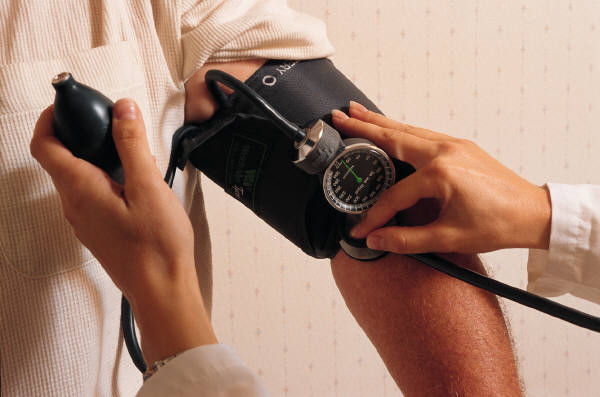Hypertension, otherwise known as high blood pressure, is a medical condition that is defined by having a blood pressure above 140/90 mmHg. There are millions of high blood pressure sufferers in the world, and it is considered a symptom of more serious health conditions, such as heart disease and stroke. As a trucker, the condition can mean more than just illness – it can represent job loss as well!
Thankfully, high blood pressure can be treated easily, and many of its symptoms can be kept under control by following some simple guidelines. There is also an enormous variety of medication and therapy options available, from basic drugs that relieve symptoms to complete, long-term health care solutions that will have lasting results.
Simply by making the right lifestyle choices you can tremendously lower your blood pressure and feel great again. Let’s see which are some of the best tips that will help you reduce your blood pressure and regain your health.

1. Lose some Weight
This is something that you probably already know by now: weight loss is the first thing you need to consider for lowering your blood pressure. Just by losing ten pounds over a two-month period, you will be able to keep the blood pressure in check. There is an added benefit: the more weight you lose, the better you will feel. Moreover, the high blood pressure drugs will be more effective, and you will need smaller doses.
So how can you start a weight loss plan? First, you should have a chat with your primary care doctor or cardiologist and ask for advice. Depending on your current weight, BMI, and any underlying medical conditions your physician will create a plan ideal for you. Your doctor can also come up with weight-loss ideas that you can fit around your busy schedule.
– Taking BMI measurements – the BMI (body mass index) tells you a lot about your weight, and this figure must be assessed by a specialized physician. Ask your doctor to measure both your waistline and the BMI before going on a weight loss plan. As a guideline, a typical waist measurement is 40 inches for men and 35 for women, so try to focus on this target.
2. Get active
Exercise is a critical component of every weight loss plan out there, and it is an excellent way to make your heart stronger and healthier. Even simple outdoor exercise, like walking or light jogging, can do miracles for your circulatory system. The American College of Sports Medicine (ACSM) recommends a minimum of half-hour physical exercise sessions daily at least five times a week. In order to have a safe, personalized exercise program, talk with your cardiologist or primary care doctor. When done correctly, exercise can activate your cell activity, boost your muscle activity, stimulate breathing and strengthen the heart.
Even on the road there are many exercise options available. A simple job around the rest stop or sit-ups in the cab can do wonders for improving your physical health.
3. Eat Healthy
Although everyone knows that eating healthy is crucial when it comes to fighting high blood pressure, it is something that is not easily done. Let’s face it: eating healthy is a challenge. There is a variety of temptations around, and many of us will fall victim to appetizing fried foods and desserts. We crave them on a daily basis, but they are obviously not good for our blood pressure.
Instead of eating these “delicious” foods, we should focus on whole cereals, vegetables, fruit and skimmed dairy products. For instance, replacing sugary drinks with plain water reduces the caloric intake by about 20 percent and does wonders for your health. Also, simply by replacing a single “dangerous” meal with a salad made from fresh vegetables and fruit will cut down the caloric intake by another 20 percent.
Even though small, these steps will eventually help you feel better and get you closer to that average blood pressure level. Most importantly, if you keep with it, you will reap the benefits for a long, long time.
Keeping yourself healthy requires a lifetime of effort, but it does not have to be a challenge. The best advice one can offer is to talk to a professional. If you need somebody certified in DOT physical examinations who are familiar with the special requirements of truckers, you can usually find one through online resources like Driver Physicals.
The writer of this article, Flaviu Mircea, is a freelance writer specializing in health topics who provides advice for his readers to help them maintain a longer and healthier life. You can learn more about Flaviu on Google+.










Comments are closed.